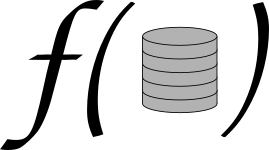CALL FOR PAPERS
26th International Conference on Database Theory (ICDT 2023)
ICDT is an international conference series on the principles and theory of data management. Since 2009, it is annually and jointly held with EDBT, the International Conference on Extending Database Technology. See also https://databasetheory.org/icdt-pages.
The 26th edition of ICDT takes place in Ioannina, Greece, from 28–31 March 2023 http://edbticdt2023.cs.uoi.gr
We are glad to announce that EDBT/ICDT will be back to an in-person conference and the organizers look forward to welcoming the database community to Ioannina after 3 years of online EDBT/ICDT events.
The conference will run in hybrid mode, so that participants having travel restrictions will still have the opportunity to attend.
We are now soliciting paper for the SECOND SUBMISSION CYCLE of ICDT:
September 14, 2022 (AoE): Abstract submission deadline
September 21, 2022 (AoE): Paper submission deadline
November 20, 2022: Notification
All submissions will be electronic via Easychair at https://easychair.org/my/conference?conf=icdt2023 see below for more information.
We welcome research papers on every topic related to the principles and theory of data management, provided that there is a clear connection to foundational aspects. This includes, for example, articles on "classical" data management topics such as:
- The design and study of data models and query languages;
- The development and analysis of algorithms for data management;
- The theoretical investigation of various aspects underlying data management systems (indexes, concurrency, distributed computation, privacy and security, ...),
but also includes papers exploring existing or identifying new connections between data management and other areas, such as the areas of:
- knowledge representation, semantic web;
- information retrieval and data mining;
- machine learning;
- distributed computing;
- theoretical computer science.
In all of the above, a clear emphasis on foundational aspects is expected.
Additional reasons for submitting to and attending ICDT are the excellent invited speakers:
Seshadhri Comandur: Subgraph counting and graph orientations: the gift that keeps on giving (ICDT Invited Lecture)
Leonid Libkin: The Essence of GQL (ICDT/EDBT Keynote)
Gonzalo Navarro: Compact Data Structures Meet Databases (ICDT/EDBT Keynote)
and high-quality scientific contributions already accepted in the 1st submission cycle:
Sepehr Assadi, Nirmit Joshi, Milind Prabhu and Vihan Shah. Generalizing Greenwald-Khanna: Streaming Quantile Summaries for Weighted Inputs
Tamara Cucumides, Juan L. Reutter and Domagoj Vrgoc: Size bounds and algorithms for conjunctive regular path queries
Kyle Deeds, Dan Suciu, Magdalena Balazinska and Walter Cai: Degree Sequence Bound For Join Cardinality Estimation
Shiyuan Deng, Shangqi Lu and Yufei Tao: Space-Query Tradeoffs in Range Subgraph Counting and Listing
Thomas Feller, Timothy Lyon, Piotr Ostropolski-Nalewaja and Sebastian Rudolph: Finite-Cliquewidth Sets of Existential Rules: Toward a General Criterion for Decidable yet Highly Expressive Querying
Diego Figueira, Anantha Padmanabha, Luc Segoufin and Cristina Sirangelo: A simple algorithm for consistent query answering under primary keys
Martin Grohe, Peter Lindner and Christoph Standke: Probabilistic Query Evaluation with Bag Semantics
Majd Khalil and Benny Kimelfeld: The Complexity of the Shapley Value for Regular Path Queries
Jingfan Meng, Huayi Wang, Jun Xu and Mitsunori Ogihara: On Efficient Range-Summability of IID Random Variables in Two or Higher Dimensions
Program Committee
Program Committee Chair:
Floris Geerts (University of Antwerp)
Program Committee Members:
Sepehr Assadi (Rutgers University)
Vaishak Belle (The University of Edinburgh)
Leopoldo Bertossi (Universidad Adolfo Ibanez)
Graham Cormode (The University of Warwick)
Ahmet Kara (University of Zurich)
Batya Kenig (Technion, Israel Institute of Technology)
Bas Ketsman (Vrije Universiteit Brussel)
Ester Livshits (The University of Edinburgh)
Wim Martens (University of Bayreuth)
Liat Peterfreund (CNRS, Université Gustave Eiffel)
Reinhard Pichler (Vienna University of Technology)
Andreas Pieris (University of Cyprus, The University of Edinburgh)
Marcin Przybyłko (University of Bremen)
Juan L. Reutter (Pontificia Universidad Católica)
Sudeepa Roy (Duke University)
Jef Wijsen (University of Mons)
Ke Yi (Hong Kong University of Science and Technology)
Thomas Zeume (Ruhr-Universität Bochum)
Proceedings Chair:
Brecht Vandevoort (Hasselt University)
Submission Instructions
Papers must be written in English and provide sufficient detail to allow the program committee to assess their merits. The results must be unpublished and not submitted for publication elsewhere, including the proceedings of other symposia, workshops, and journals.
Papers must be submitted as PDF documents, using the LIPIcs style (http://www.dagstuhl.de/en/publications/lipics/instructions-for-authors). Paper length is limited to 15 pages excluding references. Additional details may be included in a clearly marked appendix which will be read at the discretion of the program committee. Online appendices are not allowed. Papers that do not conform to these requirements may be rejected without further consideration.
The proceedings will appear under an open access license in the Leibniz International Proceedings in Informatics (LIPIcs) series, based at Schloss Dagstuhl. More specifically, all articles in LIPIcs are published under a Creative Commons Attribution (CC-BY) license. Thereby, the authors retain their copyrights and readers can re-use the published work in the most meaningful manner. The proceedings will also appear in Scopus.
At least one author of each accepted paper is expected to register at the conference and present the paper.
Awards
An award will be given to the Best Paper and to the Best Newcomer Paper where `newcomer' refers to the field of database theory. The latter award will preferentially be given to a paper authored only by students and in that case be called Best Student-Paper Award. The program committee reserves the right to not give any award and to split an award among several papers. Papers co-authored by program committee members are not eligible for an award.
Detailed list of topics (not exclusive): ICDT welcomes papers on any topic related to principles of data management such as, for example, data mining, information extraction, information retrieval, database aspects of machine learning, distributed and parallel databases, cloud computing, graph databases, (semantic) Web data, web services, data streams, sketching, data-centric (business) process management and workflows, data and knowledge integration and exchange, data provenance, views, data warehouses, domain-specific databases (multimedia, scientific, spatial, temporal, text), data privacy and security, concurrency, and recovery.
